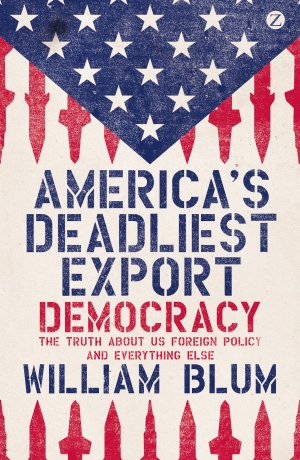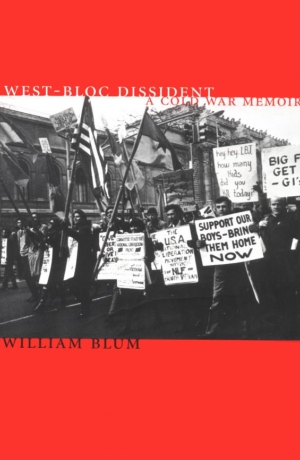The myth of America’s “booming economy”
By William Blum
(Written 1999-2000, but can be applied to any other period in which we’re assured that the US economy is booming. Indeed, most of what follows can serve as a descriptive list of America’s huge underclass at any time.)
You cannot escape it. You read it and hear it everywhere. From every news medium, every politician – the economy is booming … thriving … soaring … the leading economic indicators are looking great … stock market is going through the roof … “economy showed signs of continued strength last month as Americans’ personal income rose by a robust .7 percent” … prosperity everywhere … the world’s richest country …
But … but what about … what about …
- the working poor, the millions who toil at full-time jobs, yet remain below the official poverty level (an unrealistically low figure to begin with), their real purchasing power below 1979 levels
- the husbands and wives each having to work full time so that together they manage to rise a little above the poverty level
- the millions forced to surrender 30 to 70 percent of their paycheck for rent
- those living in severely substandard housing
- the more than a million families who do not have indoor bathrooms or hot-and-cold running water
- the unemployed (the real amount, not the fudged figures announced to the public)
- those who want and need a full-time job, but can only get a part-time job, minus benefits
- those who want and need a permanent job, but can only get a temporary job, minus benefits
- the underemployed – college graduates and those with advanced degrees working at relatively menial jobs with no connection to their studies
- the more than 43 million without any health insurance
- the even greater number without dental insurance
- the further millions with inadequate health insurance, including those with Medicare and Medicaid
- the elderly who spend half their income for health care and prescriptions
- the elderly who have to choose between prescriptions and food; (about half the prescriptions written go unfilled because many elderly people literally have to make this choice)
- the elderly who purchase cat and dog food, but don’t own any pets
- the millions with inadequate sick leave or maternity leave, or none at all
- those – the great majority of employees – who are lucky to get two weeks vacation, compared to the European norm of five weeks
- those forced to choose between heat and sufficient food in the winter
- those literally dying on sweltering summer days because
- they can’t afford an air conditioner or are concerned about their electricity bill
- those whose phone, gas or electricity has been turned off for non-payment
- the more than a million people who don’t even own a phone
- the homeless
- those one paycheck or one illness or one divorce away from homelessness
- those living five to ten people in a one-bedroom apartment
- the millions who go to bed hungry at least part of every month; (A January 2000 report from the Center on Hunger and Poverty at Tufts University stated that 30 million Americans worry about where they will get their next meals.)
- those frightened by the welfare reform law of 1996 into not applying for food stamps, welfare or Medicaid
- the 1.8 million souls in prisons and jails
- those who have enlisted in the military to escape dead-end poverty
- those who want to go to college but can’t afford to
- those who go to college at the cost of a huge debt hanging round their neck for years
- the illegal aliens working as semi-slaves in sweatshops
- the almost 20 percent of American households who are broke, with a net worth of zero or less, more than double the number of 30 years ago
- those living on their credit cards, making only the minimum payments each month, as the exorbitant interest piles up year after year
- the more than 50,000 businesses which filed for bankruptcy last year
- the million five hundred thousand individuals who filed for bankruptcy last year
- the numerous cleaning women and maids who spend four hours on a bus each day to and from their minimum-wage job
- the middle-class people who maintain their standard of living by working 50, 60, 70 hours per week, by their choice or their employer’s dictate, plus a daily two- or three-hour commute, returning home totally wiped out and overstressed
- those hanging on to jobs they hate – jobs making them sick – only because of the health insurance and pension
- those forced by their employers to pay more and more of their insurance and pension costs
- those living only on social security
- those living only on welfare
- the more than a million Native Americans living on reservations, for whom much of the above has to be multiplied
What’s booming are soup kitchens and homeless shelters. And a growing majority of those waiting in line for a meal or a bed are actually employed.
–
A companion piece to the above: Dancing on the electric grid by Per Fagereng
Picture this standard experiment in psychology: A group of rats is placed on an electric grid and the voltage is slowly increased. After a while the rats feel a burning tingle in their feet. The experimenters up the voltage some more, and watch the rats dance and bite each other.
The experimenters are seeking knowledge, and the rats’ pain is presumably worth it. The experimenters don’t blame the rats for fighting each other, or punish the more aggressive ones. They know that individuals react to pain in different ways.
Now picture the economic terrain as a different kind of pain grid. Instead of electric shocks, the inhabitants experience job loss, higher prices, less pay, overwork, polluted neighborhoods and so on. Controlling the grid are not psychologists, but CEOs and bankers. Instead of knowledge, they are seeking profit. And so they up the pain, but not because they want to hurt people. They are really trying to up their profits, and the pain is a side effect.
After a while people on the grid do nasty things to each other, everything from domestic violence to immigrant-bashing to crime. Unlike the rats, the people get blamed for their misbehavior. We are told to point our fingers at the victims on the grid, instead of at the economic rulers who keep increasing the pain.
You’d think that the CEOs and bankers would ease up on the pain, but think again. They continue to demand more sacrifice from the poor, knowing full well how they’ll react.
Would you call this a big conspiracy? Or the sum of many small conspiracies? Maybe it doesn’t matter that much. I’m not a mind reader. The point is, the economic rulers pursue their profits and they know the consequences. So to that extent, they are choosing to inflict pain.




